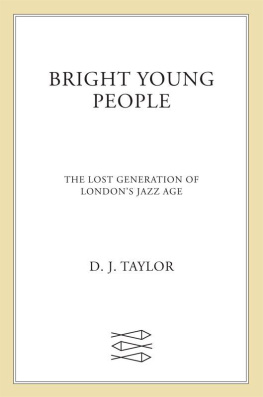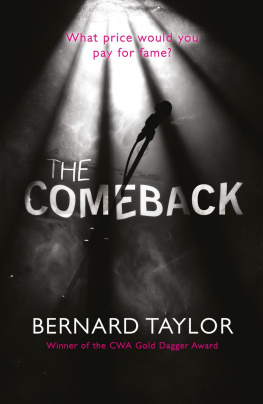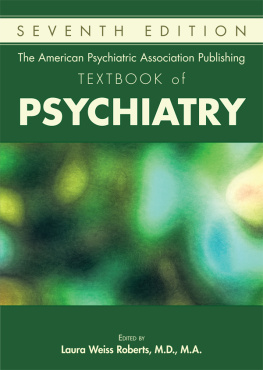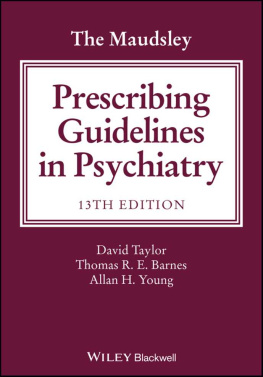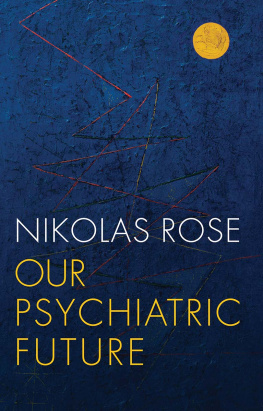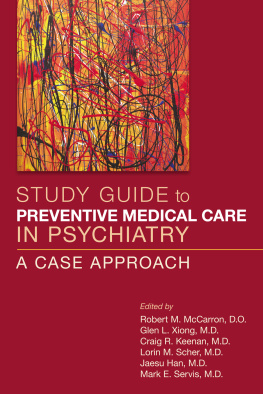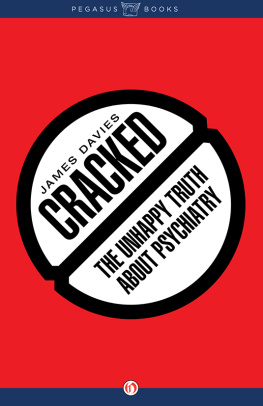Hippocrates Cried

Hippocrates Cried
The Decline of American Psychiatry

Michael Alan Taylor, MD



Oxford University Press is a department of the University of Oxford.
It furthers the Universitys objective of excellence in research, scholarship, and education by publishing worldwide.
Oxford New York
Auckland Cape Town Dar es Salaam Hong Kong Karachi
Kuala Lumpur Madrid Melbourne Mexico City Nairobi
New Delhi Shanghai Taipei Toronto
With offices in
Argentina Austria Brazil Chile Czech Republic France Greece
Guatemala Hungary Italy Japan Poland Portugal Singapore
South Korea Switzerland Thailand Turkey Ukraine Vietnam
Oxford is a registered trademark of Oxford University Press
in the UK and certain other countries.
Published in the United States of America by
Oxford University Press
198 Madison Avenue, New York, NY 10016
Michael Alan Taylor 2013
All rights reserved. No part of this publication may be reproduced, stored in a retrieval system, or transmitted, in any form or by any means, without the prior permission in writing of Oxford University Press, or as expressly permitted by law, by license, or under terms agreed with the appropriate reproduction rights organization. Inquiries concerning reproduction outside the scope of the above should be sent to the Rights Department, Oxford University Press, at the address above.
You must not circulate this work in any other form and you must impose this same condition on any acquirer.
Library of Congress Cataloging-in-Publication Data
Taylor, Michael Alan, 1940
Hippocrates cried: the decline of American psychiatry/Michael A. Taylor
p. cm.
Includes bibliographical references and index.
ISBN 9780199948062 (hardcover: alk. paper) 1. PsychiatryUnited States
History. 2. NeurosciencesUnited StatesHistory. 3. Diagnostic and statistical
manual of mental disorders. I. Title. II. Title: Decline of American psychiatry.
RC339.A1T39 2013
616.89dc23
2012030771
The science of medicine is a rapidly changing field. As new research and clinical experience broaden our knowledge, changes in treatment and drug therapy occur. The author and publisher of this work have checked with sources believed to be reliable in their efforts to provide information that is accurate and complete, and in accordance with the standards accepted at the time of publication. However, in light of the possibility of human error or changes in the practice of medicine, neither the author, nor the publisher, nor any other party who has been involved in the preparation or publication of this work warrants that the information contained herein is in every respect accurate or complete. Readers are encouraged to confirm the information contained herein with other reliable sources, and are strongly advised to check the product information sheet provided by the pharmaceutical company for each drug they plan to administer.
Doctor Taylor has no connections to the pharmaceutical industry or
to any manufacturer of devices used to treat psychiatric patients.
9 8 7 6 5 4 3 2 1
Printed in the United States of America
on acid-free paper
To Ellen
CONTENTS
This is a series of personal essays. It is a 45-year eyewitness account of the decline of American psychiatry. It is not a broad social history or an in-depth memoir or an autobiography of my personal life. Other than my mother, most observers found that last sequence of events less than exciting. I experienced no great journeys to the ends of the earth or to enlightenment. I made no great discoveries that changed the course of human events. Nothing happened in my life that would inspire a novelist or a playwright. Although my wife and two kids are the kind of people who bring out the best in others and who you dont want to let down, and although I gave them priority over academic political advancement, they are not central to this account. This chronicle is a narrative of what I witnessed over almost half a century of the degrading of a branch of medicine as old as Western Civilization. This book is a personal account of that debasement. It is an effort to show what has happened to psychiatry in the United States over the past 50 years through personal memories, from the stories of patients I have tried to help, and from what the science of the field reveals. The decline has occurred in the ability to effectively diagnose and care for patients, and it has been fueled in part by a moral decline, as many in our field sold their souls to the pharmaceutical industry. The debasement is not a pretty picture. Of course, like all eyewitness accounts, this one is the product of the distillation of memory flavored by opinion and aging.
The aging occurred over four decades of seeing thousands of patients, training hundreds of residents and many more medical students, directing acute-treatment psychiatric inpatient units in different parts of the country, chairing a department of psychiatry, and founding a doctorate-level department of psychology, with both departments focusing on brain and behavior interactions. Ive done my share of research, founded a scientific journal, published peer-reviewed papers, some of which have made a difference, and I have written or co-authored a number of textbooks. For the past 12 years I have been on the psychiatry faculty of the University of Michigan where I see patients as a neuropsychiatrist and as a member of the electroconvulsive therapy team. But as I look back at the events surrounding those professional biographic milestones, I see a deterioration in patient care and in the skills and knowledge psychiatrists were supposed to have acquired when I started out. I am both saddened and angry by the decline of my slice of medicine.
Over those years, the field has learned much about brain chemistry and its neurotransmitters and their receptors among laboratory animals and in Petri dishes, but it has mostly ignored how it all works in the patients brain at the bedside. Almost any psychiatry resident and many practicing psychiatrists can tell you which neurotransmitter system a specific psychiatric medication is supposed to alter, but few can tell you which parts of the brain those transmitters subserve and what those brain areas do in generating normal or abnormal behavior. Almost all psychiatric residents can recite at least in approximation the diagnostic criteria for depression, mania, and the other big-ticket items in the present diagnostic system, but few have heard and even less can recognize the wealth of diagnostically revealing psychopathology not listed in the diagnostic manual and so they miss the illness the patient in fact has as they offer the label that has little relevance to what needs to be done to successfully treat the patient. Alas, most of their teachers are no better.
It is, of course, presumptuous to relate some of the events of your life for others to consider. But I was a tenured professor for decades. I profess. And, without realizing it, I have followed the injunction offered by D. H. Lawrence:
Next page



